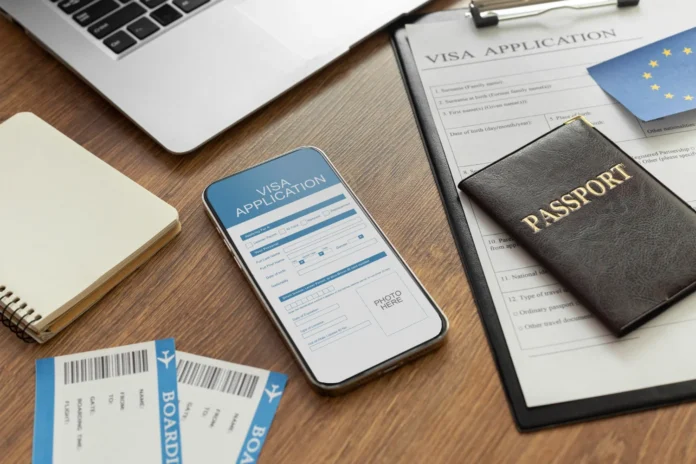Labuan Bajo, the gateway to the magical Komodo Island, is becoming an increasingly popular destination for remote workers, digital nomads, and expats. Known for its breathtaking sunsets, world-class diving, and unforgettable Komodo boat tours, this once-sleepy fishing village is now a bustling hub for travelers and entrepreneurs alike.
But before you book that Komodo liveaboard or settle in for a more extended stay, it’s essential to understand Indonesia’s visa and work regulations. Whether you’re visiting for a week or considering a move, here’s what you need to know to stay compliant and enjoy your time in paradise, stress-free.
Also read Avoid the Rush: Off-Peak Alternatives for Long Weekend Travel to Komodo Island
1. Tourist Visas: Short-Term Visits to Labuan Bajo and Komodo Island
Suppose you’re coming for a holiday to explore Labuan Bajo, Padar Island, or take a Komodo Island tour. In that case, the Visa on Arrival (VoA) is your best bet. This visa is available for citizens of over 80 countries and is issued directly at major Indonesian airports and seaports.
- Duration: 30 days
- Extension: One-time extension for 30 more days
- Purpose: Tourism, visiting friends/family, short business meetings (not work)
- Fee: IDR 500,000 (approx. USD 35)
This visa does not allow you to earn money or conduct business. So while you can enjoy a Komodo boat tour, attend conferences, or meet potential partners, you cannot work or sell services while on a tourist visa.
2. B211A Visa: For Longer Stays or Business Exploration
The B211A Visit Visa is better suited for those planning to stay longer or engage in business exploration in Labuan Bajo or other parts of Indonesia. It’s especially popular among digital nomads and entrepreneurs testing the waters before entirely relocating.
- Duration: 60 days (with 2 possible extensions of 60 days each)
- Purpose: Business meetings, investment scouting, volunteering, journalism, or cultural activities
- Work Restriction: You cannot be employed or receive income from Indonesian sources
- Application: Can be arranged online via the Indonesian e-visa system or through a local sponsor
While the B211A allows for business exploration, it also avoids work that replaces an Indonesian worker or earns locally; doing so violates immigration laws.
3. Work Visas (KITAS): For Long-Term Employment or Freelancers with Clients Abroad
Suppose you intend to live and work in Indonesia for an extended period, especially in popular expat areas like Labuan Bajo. In that case, you’ll need a KITAS (Limited Stay Permit). These are issued for:
- Foreign employees of Indonesian companies
- Entrepreneurs starting local businesses
- Remote workers working for foreign companies (with the proper legal structure)
There are different KITAS types depending on your status:
- Work KITAS: Sponsored by an Indonesian company
- Investor KITAS: For business owners and investors
- Digital Nomad KITAS (in progress): Indonesia has been discussing options for remote workers to stay legally without violating visa terms. Updates are expected soon.
Important: Working without a proper KITAS is illegal and can result in deportation, fines, or even blacklisting.
4. Business Activities vs. Employment: Know the Line
Many travelers are unclear about what counts as “working” in Indonesia. Here’s a simple rule:
- Allowed: Attending business meetings, conferences, trade shows, doing online work for foreign clients (on B211A or KITAS)
- Not Allowed: Working for Indonesian companies, managing operations, earning income in Indonesia, or offering services locally without proper permits
If you plan to run workshops, offer yoga classes, or organise tours—even temporarily—you’ll need the appropriate work permit and tax registration.
5. Reporting and Compliance
Once in Labuan Bajo, especially if you’re staying for more than 30 days, you may need to report to the local immigration office (Kantor Imigrasi). Hotels and guesthouses often assist with this for short-term tourists, but for more extended stays:
- Ensure your visa is current and properly extended.
- Keep copies of your visa, passport, and sponsor letter (if applicable)
- Check your visa’s conditions carefully—overstaying even by one day can lead to fines (IDR 1,000,000/day)
Final Tips for a Smooth Stay
- Use a reputable visa agent if unsure about the application process or visa type.
- Don’t rely on “under the table” arrangements—immigration raids happen in tourist-heavy spots like Labuan Bajo.
- Combine your cultural curiosity with legal awareness. Whether diving off Komodo Island, hiking Padar Island’s ridges, or working remotely from a café, knowing the rules helps you focus on the experience.
Labuan Bajo and the Komodo Island region are incredible places to visit or live, but like anywhere in the world, understanding local immigration laws is key. Respect the rules; this tropical haven will welcome you with open arms.































